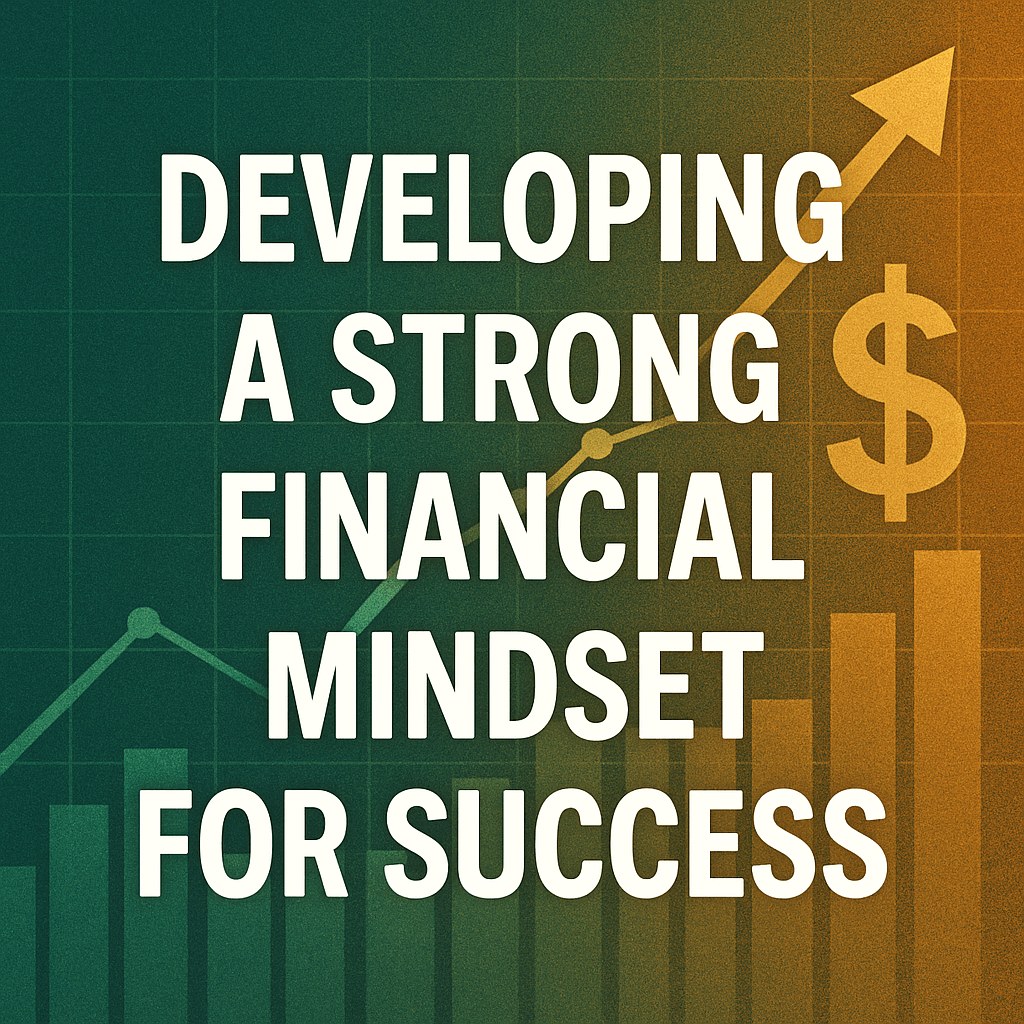Developing a Strong Financial Mindset for Success

By integrating thoughtful financial strategies into your daily routine, you can not only secure your present but also pave the way for a prosperous future. This article delves into practical approaches that can redefine your relationship with money, offering insights into education, spending habits, and financial planning.
Enhancing Self-Worth for Financial Success
Recognizing the connection between your self-esteem and spending habits can profoundly impact your financial choices. Numerous studies indicate that individuals with higher self-worth are more inclined to make intentional financial decisions. They are less likely to engage in impulsive purchases that often stem from emotional needs or societal pressures. A positive money mindset enables you to manage your finances more wisely, thereby minimizing the risk of accumulating debt.
- Self-Reflection Techniques: Regular self-reflection can help identify triggers for impulsive spending. Journaling or meditation can be effective methods.
- Setting Financial Boundaries: Establish clear boundaries around unnecessary expenditures while focusing on experiences rather than possessions.
By consistently enhancing your self-esteem, you can break free from the overspending cycle and allocate your financial resources toward savings and investments, laying the groundwork for sustainable wealth.
Propelling Your Financial Future with Online IT Education
In today’s technology-centric job market, pursuing an online IT degree can be a transformative step in cultivating a healthy relationship with money. Degrees in Information Technology not only provide foundational knowledge but, when combined with certifications such as those from CompTIA (Computing Technology Industry Association), equip you with essential skills that are highly valued in the labor market.
- Flexible Learning: Online education offers the adaptability to balance work and study commitments, allowing you to advance your career prospects without sacrificing your current employment.
- Skills Advancement: Lifelong learning not only enhances your professional profile but also keeps you competitive in rapidly evolving fields like cybersecurity and data analytics.
Continuous education can significantly increase your earning potential, providing opportunities for promotions and higher salaries, thus supporting a more secure financial future.
The Impact of Digital Marketing on Spending
In the digital era, the influence of digital marketing and social media on spending behaviors is profound. Platforms like Facebook and Instagram deploy targeted campaigns and personalized advertisements that can encourage emotional and impulsive buying, particularly among young consumers who spend a considerable amount of time online.
According to a recent study conducted by the Journal of Consumer Research, active engagement, such as liking and commenting on social media posts, heightens emotional responses, often leading to unplanned purchases.
To counteract these tendencies, cultivating mindful spending habits is essential. Strategies may include:
- Set Clear Financial Goals: Define short and long-term financial goals to help navigate your spending choices.
- Limit Exposure: Reduce time spent on social media or unfollow brands that encourage overly indulgent spending.
Creating a Financial Safety Net
Establishing an emergency fund is paramount for effective financial management. By setting aside even a modest amount, such as $1,000, you create a financial buffer that can cover unexpected expenses—from car repairs to medical bills—without resorting to credit cards or loans. This proactive strategy helps prevent the accumulation of new debt and contributes to peace of mind.
- Incremental Savings: For individuals with limited income, consider gradually saving smaller amounts, like $50 monthly, to cultivate a safety net.
- Targeted Savings Accounts: Utilize high-yield savings accounts that provide better interest rates for emergency funds, maximizing your savings potential.
Achieving Financial Harmony: Balancing Debt and Retirement
Striking a balance between debt repayment and retirement savings is vital for overall financial stability. While it might be tempting to channel all resources into paying off high-interest credit card debt, allocating a portion of income toward retirement savings is equally crucial. This dual approach not only alleviates debt burden but also ensures that your retirement funds have ample time to appreciate in value, thanks to compound interest.
- Debt Repayment Strategies: Consider methods such as the “snowball method,” focusing first on smaller debt amounts, providing quick wins that boost motivation.
- Employer Matching: If your employer offers a matching retirement plan, always aim to contribute at least enough to maximize this benefit—it’s essentially free money.
Navigating Lifestyle Inflation for Better Mental Health
As income levels rise, the temptation to indulge in new luxuries—known as lifestyle inflation—can adversely affect mental well-being. Without a defined financial strategy, the pressure to sustain this upgraded lifestyle may lead to heightened stress and anxiety. Establishing a budget acts as a guiding framework that not only aids in saving money but also fosters a sense of control over your financial situation.
- Budget Adjustments: Regularly revisiting and adjusting your budget, especially during periods of economic uncertainty or high inflation, ensures that your spending remains aligned with income and goals.
- Emotional Well-Being: Research indicates that financial stability can improve overall mental health, confirming the importance of effective budgeting strategies.
Capturing Financial Peace Through Minimalism
Adopting a minimalist approach to financial management can significantly enhance mental well-being by lowering financial stress and fostering control. By concentrating on what truly matters and recognizing your threshold of ‘enough,’ you can simplify your financial landscape, thus alleviating anxieties commonly tied to monetary management.
- Intentional Living: Adopting minimalist principles helps individuals avoid the pitfalls of mindless spending and align financial decisions with long-term aspirations.
- Focus on Value: Invest your resources in experiences or items that provide lasting satisfaction rather than momentary gratification.
Conclusion
Incorporating these strategies into your financial routine can create a more stable, fulfilling life. By focusing on education, you empower yourself to make informed decisions. Mindful spending aligns your finances with personal priorities, while strategic planning establishes the foundation for long-term success. As you develop healthy financial habits, you foster greater confidence and security in navigating life’s challenges and seizing opportunities.
Unlock the secrets to financial independence and sound investing with DIY Investor—your go-to resource for empowering your financial future!